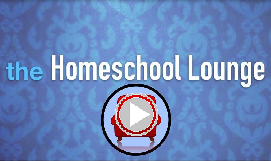Is homeschool really for everyone?
It’s often said that anyone can homeschool, but homeschooling is not for everyone. This article will unpack both sides of this statement, looking at the reasons and research on why any parent could homeschool their child, versus situations where homeschooling would not be good for the family.
New parents wonder if they can homeschool
Since 2020, many families who never gave homeschooling much consideration before, have gained a different perspective on their children’s education.
Parents have been anxious, stressed, and debating whether their own education and abilities make them fit to homeschool their children, and questioning the shapes homeschooling can take. From wondering whether they are sufficiently qualified or knowledgeable, to wondering how much and what kind of work to do every day and for how long, it can easily feel overwhelming.
The homeschooling community who have been advocating its benefits over the years, maintains that any parent can homeschool for many practical and well-researched reasons.
Reasons why any parent can homeschool
- Parents know their children best – what upsets them, what excites and delights them, and what they are most interested in.
- Parents have the benefit of life experience and the ability to discern and make decisions in the best interests of their children, following the above point.
- Research by the National Home Education Research Institute (NHERI) has shown that parents’ qualifications have little bearing on their children’s success as a homeschooler.
- Parents are motivated by the bond of the relationship and capable of creating a child-centred learning approach around what their children most need, something schools are unable and unequipped to do.
- Moreover, read this positive statement backing your role and competence, by developmental and clinical psychologist Dr Gordon Neufeld:
“…this belief in school as a social and developmental need is not truly informed by the science of how children come to their full potential, including how they best learn and become fit for adult society. Fifthly, it is not consistent with the evidence: homeschooled children have consistently demonstrated better results in both academic learning as well as integration into mainstream society.”
Basically, the bottom line of Dr Neufeld’s studies on how children learn best is that children need their parents far more than they need a school!
Practical considerations for homeschooling
The decision to homeschool is often forced by situations such as:
- A child or parent developing a serious illness.
- A child having more complex needs that cannot be served by a school.
- Lack of finances to pay school fees.
- Rural locations present a logistical and financial challenge in terms of parents having to pay bus and/or hostel fees on top of school fees.
- A temporary family crisis or a temporary move to another location.
- More flexibility and time to train for sport or pursue further training in other interests.
The lockdowns of 2020 obviously forced many families into homeschooling, but not in the typical sense of the word. Overnight, schools and staff had to quickly adapt to using more technology, teaching online, and sending work online which has been stressful for most families. After a while, many other families started exploring other online homeschooling options that are better equipped to support them, and then the first real steps into homeschooling began.
NHERI published an article in August of 2020 showing that “Parents not homeschooling before the pandemic are more likely to be favorable toward homeschooling now (43% more vs. 28% less).” The sentiment is likely to be the same here is South Africa (if not more so), where it is clear that the public education system is a sinking ship.
But what about situations where it seems like there is no light at the end of the tunnel of challenges?
Situations where homeschooling is not ideal for a family
There are, however, certain exceptions and situations where homeschooling may not be the most fitting approach for a family. These include:
- Parents who work long hours and/or are frequently away on work-related trips and there are no other family members available to lend sufficient support.
- Situations where the home environment is unsafe for sanitary, crime or domestic violence-related reasons are also unsuitable for homeschooling.
- Instability in the home due to mental illness.
- Drug addiction issues in the home.
Obviously, young children also cannot be homeschooled if there are no adults at home to supervise and protect them.
Wanda Rossouw, an experienced social worker who works with many vulnerable children in some of the above scenarios in the Northern Cape, says: “Parents who decide to homeschool should be committed to fulfilling the responsibility until their children graduate, or they may run the risk of neglecting their children while overly preoccupied with work and other priorities. When parents feel they lack the patience, it is important to remember that patience is a learned skill. It takes organisation, planning and follow through to homeschool effectively.”
The family’s choice of education
Other times, families simply feel that school is the better route to go for social reasons, conflict, isolation, or other personal reasons.
Benita Pheiffer, mom of children both in school and learning at home, says, “We decided to put our oldest back into mainstream as mentally it wasn't a good place for me or him. If one child goes to mainstream it doesn't mean all of them have to go, just the ones who will benefit more. Lockdown, the lack of social and sport gatherings didn't help. We felt increasingly isolated and the work became stressful. My youngest is home, having fun learning and playing and I can cope with it. Parents must plan long before choosing to pull children out of mainstream and consider what will work, the budget for extracurricular and social gatherings, working from home, schedules and times for fun. Extroverted kids react to homeschooling very differently than introverted kids do. Don't try to fit your kids in your own mold, because that's just as bad as forcing a kid to go to mainstream who struggles to adapt.”
Dr Neufeld also says, “It has become rather evident as a result of the pandemic that today’s society is reliant upon school. At the same time however, what a particular child truly needs may be at risk by going to school. This is where wisdom is called for if one has the luxury of options.”
Help, support, and options are available
The beauty of homeschooling is that there are many options for customising a child’s education to suit their individual needs, goals, and interests – more than a standard school can usually provide. As always, every family should make their own education decisions in a way that advances and supports the children’s best interests and potential, whether that means public school, private school, or homeschooling.

Events
Legal & Research
Centres
Homeschool ABC
Support
Curriculums
Impaq: Homeschool & Online ...
Impaq: The leading homeschooling curriculum provider in South ...
GED through Learnalot - Grade 12 ...
Why enrol with Learnalot? With Learnalot, you have the flexibility ...
Has no content to show!
































Comments